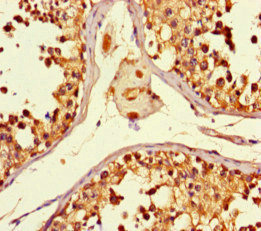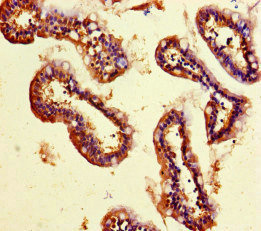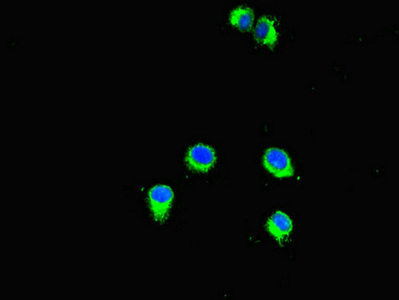Full Product Name
Rabbit anti-Homo sapiens (Human) SMYD2 Polyclonal antibody
Alternative Names
Histone methyltransferase SMYD2 antibody; HSKM B antibody; HSKM-B antibody; HSKMB antibody; KMT3C antibody; Lysine N-methyltransferase 3C antibody; MGC119305 antibody; N lysine methyltransferase SMYD2 antibody; N-lysine methyltransferase SMYD2 antibody; SET and MYND domain containing 2 antibody; SET and MYND domain containing protein 2 antibody; SET and MYND domain-containing protein 2 antibody; Smyd2 antibody; SMYD2_HUMAN antibody; Zinc finger MYND domain containing 14 antibody; ZMYND14 antibody
Immunogen
Recombinant Human N-lysine methyltransferase SMYD2 protein (115-272AA)
Immunogen Species
Homo sapiens (Human)
Conjugate
Non-conjugated
The SMYD2 Antibody (Product code: CSB-PA885705LA01HU) is Non-conjugated. For SMYD2 Antibody with conjugates, please check the following table.
Available Conjugates
| Conjugate |
Product Code |
Product Name |
Application |
| HRP |
CSB-PA885705LB01HU |
SMYD2 Antibody, HRP conjugated |
ELISA |
| FITC |
CSB-PA885705LC01HU |
SMYD2 Antibody, FITC conjugated |
|
| Biotin |
CSB-PA885705LD01HU |
SMYD2 Antibody, Biotin conjugated |
ELISA |
Purification Method
>95%, Protein G purified
Concentration
It differs from different batches. Please contact us to confirm it.
Buffer
Preservative: 0.03% Proclin 300
Constituents: 50% Glycerol, 0.01M PBS, PH 7.4
Tested Applications
ELISA, IHC, IF
Recommended Dilution
| Application |
Recommended Dilution |
| IHC |
1:20-1:200 |
| IF |
1:50-1:200 |
Storage
Upon receipt, store at -20°C or -80°C. Avoid repeated freeze.
Lead Time
Basically, we can dispatch the products out in 1-3 working days after receiving your orders. Delivery time maybe differs from different purchasing way or location, please kindly consult your local distributors for specific delivery time.
Usage
For Research Use Only. Not for use in diagnostic or therapeutic procedures.









